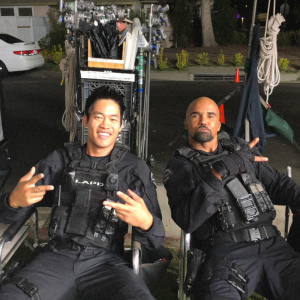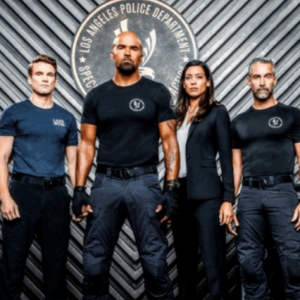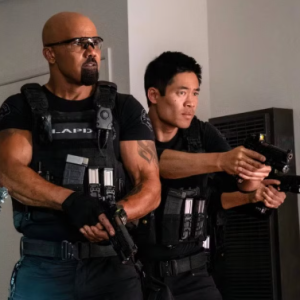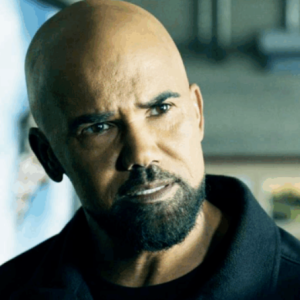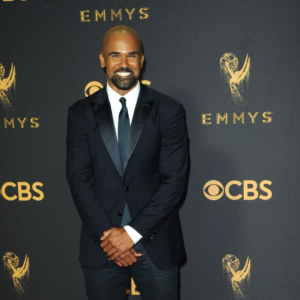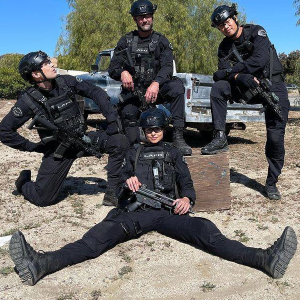The landscape of long-running television franchises is ever-changing, a reality strikingly underscored by the upcoming S.W.A.T. Exiles spinoff. While Shemar Moore, in his iconic role as Daniel “Hondo” Harrelson, is set to headline this new chapter, the notable absence of much of the original ensemble cast has sparked considerable discussion among fans. Among those not returning is Jay Harrington, who masterfully portrayed Sergeant David “Deacon” Kay for seven seasons, a character widely regarded as the moral compass and grounded backbone of the S.W.A.T. squad. Harrington’s recent comments on this transition offer a unique, refreshingly candid, and surprisingly sports-centric perspective on the evolution of a beloved series.
As Deacon Kay, Harrington was more than just a team member; he was the embodiment of stability and experience. A veteran police officer, a dedicated family man, and a mentor figure to younger officers, Deacon’s steady presence often balanced Hondo’s more impulsive, albeit equally effective, leadership style. His deep-seated loyalty to his team, his unwavering ethical code, and his relatable personal struggles—from financial pressures to balancing dangerous police work with family life—endeared him to viewers. For many, Deacon was the heart of the squad, a character whose reliability and integrity anchored the often-high-stakes and morally complex world of S.W.A.T. Given his pivotal role and immense fan popularity, the expectation was widespread that Harrington would naturally transition into any new iteration of the franchise. His absence from S.W.A.T. Exiles thus left a significant void, prompting questions and fueling speculation about the creative direction of the spinoff.
Harrington, in a revealing interview, confirmed that he was not approached to join S.W.A.T. Exiles. While he admitted to an initial sting of disappointment, his reflections quickly pivoted to a mature understanding of the network’s vision. He acknowledged the pragmatic realities of television production and the strategic decision to center the new series squarely on Shemar Moore. “It’s Shemar’s show now,” Harrington stated, recognizing Moore’s undeniable star power and the network’s pursuit of a fresh narrative trajectory. This perspective is crucial, highlighting the common practice in television of leveraging a central, charismatic figure to anchor a new property, often to inject renewed energy and appeal to a broader audience. Rather than harboring any bitterness, Harrington expressed profound gratitude for his time on S.W.A.T. and genuine excitement to follow the new series as a fan, a testament to his professionalism and camaraderie.
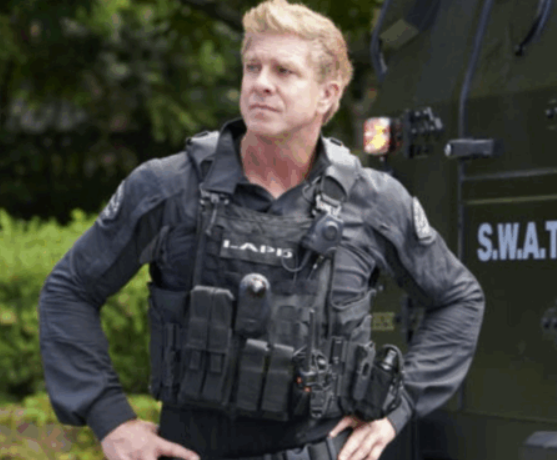
What truly captivated and surprised many in Harrington’s commentary was his analogy: he likened Shemar Moore leading S.W.A.T. Exiles without the original cast to NFL quarterback Tom Brady departing the New England Patriots to play for the Tampa Bay Buccaneers. This comparison, initially unexpected, holds a profound logic that resonates deeply with the dynamics of high-stakes performance, whether on the field or on screen. Brady’s move was a monumental moment in sports, a legendary figure stepping into a new chapter without the familiar team and system that had defined his unparalleled success for two decades. It was a test of his individual greatness, a challenge to prove he could lead a new team to victory and forge a new legacy outside the comfort zone of his established environment.
Similarly, Moore’s leadership of S.W.A.T. Exiles represents a franchise cornerstone moving forward, shouldering the immense responsibility of carrying the series into uncharted territory without the established camaraderie and chemistry of his original team. Both situations involve a degree of reinvention, a calculated risk, and the inherent challenge of demonstrating that success can indeed exist—and perhaps even flourish—beyond the comfort and familiarity of the original setup. The analogy underscores the concept of individual leadership and star power. Both Moore and Brady are figures who command respect, who have consistently carried their teams, and who thrive under immense pressure. Fans of the original S.W.A.T. squad will undoubtedly miss characters like Deacon, Tan, and Luca, much like Patriots fans initially grieved Brady’s departure. However, the new chapter, under Moore’s singular guidance, carries the potential to redefine the franchise’s legacy and explore new narrative possibilities.
Harrington’s support for Shemar Moore extends beyond mere acknowledgement; it’s a genuine endorsement. Despite being excluded from the new project, Harrington lauded Moore for his exceptional leadership, both in front of and behind the camera. He affectionately described Moore as the “quarterback for the cast,” highlighting his ability to set a positive tone, motivate his co-stars, and foster a familial atmosphere within the ensemble. This insight reinforces the Tom Brady comparison, suggesting that Moore possesses the essential qualities—charisma, drive, and the capacity to inspire—to lead S.W.A.T. Exiles to new heights, even in the absence of the original crew. It speaks to Moore’s dedication not just as an actor, but as a producer and a figurehead for the entire franchise.
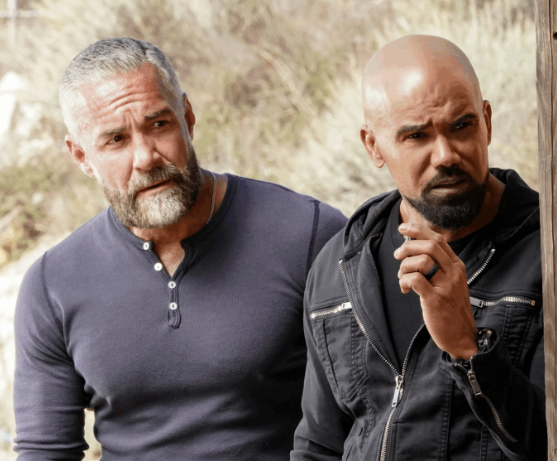
The reception among fans, predictably, remains split. A segment of longtime viewers, deeply invested in the original ensemble’s chemistry and individual character arcs, feels a profound sense of disappointment, believing that Exiles will fundamentally lack the magic without Deacon, Tan, Luca, and the others. Their connection to the original team runs deep, built over seven seasons of shared experiences and character development. Conversely, another contingent expresses excitement for the spinoff, viewing it as a prime opportunity for fresh storytelling, new challenges, and a chance for Moore’s Hondo to further evolve and tackle different kinds of cases and personal journeys. This division reflects a common dilemma in television franchises: balancing the nostalgia and loyalty of an existing fanbase with the need for innovation and renewal to attract new viewers and sustain interest.
The decision to launch spinoffs without carrying over full original casts is not a novel concept in the television industry. Franchises like NCIS, CSI, and Law & Order have successfully—and sometimes less successfully—navigated this path. NCIS expanded with Los Angeles, New Orleans, and Hawai’i, each establishing its own identity with new ensembles. CSI spawned Miami and New York, leveraging the brand recognition while introducing new characters and settings. Law & Order has proliferated into numerous iterations, often focusing on new districts or specialized units. These examples demonstrate that while it can sometimes alienate loyalists who crave the original dynamic, it can also reinvigorate a brand and open up exciting new creative avenues. Harrington’s comments acknowledge this established reality of television evolution without bitterness, showcasing a mature understanding of an industry where change is not only inevitable but often necessary for survival and growth.
Jay Harrington’s overarching message is one of acceptance and forward-thinking support. While he will not be physically present in S.W.A.T. Exiles, he is unequivocally rooting for its success. His realistic and gracious outlook serves as a valuable reminder to fans that television, like any creative medium, is constantly evolving. Casts change, narratives shift, and sometimes, moving forward genuinely means leaving beloved characters behind, not out of disrespect, but out of a creative imperative to explore new horizons. His perspective offers a blueprint for how actors, and by extension, fans, can honor the past while embracing the potential of the future.
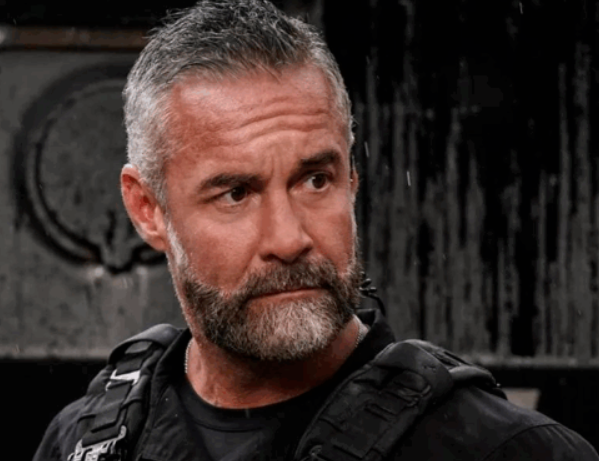
In conclusion, Jay Harrington’s response to his exclusion from S.W.A.T. Exiles is a model of candor and grace. Far from dwelling on disappointment, he chose to celebrate his significant journey with the original series, laud Shemar Moore’s proven leadership, and offer an insightful, if unconventional, comparison to Tom Brady’s legendary career pivot. For the dedicated fanbase, this situation evokes a complex mix of emotions. There will undoubtedly be a deep sense of missing Deacon Kay, a character whose integrity and warmth resonated profoundly. Yet, Harrington’s supportive stance for the new direction—and his compelling, football-inspired analogy—provides a crucial perspective: while change is an unavoidable constant in the entertainment world, the potential for greatness, reinvention, and enduring storytelling can indeed continue in new and exciting forms. The stage is now set for Shemar Moore and S.W.A.T. Exiles to write their own chapter, building on a robust foundation while forging a fresh identity.
